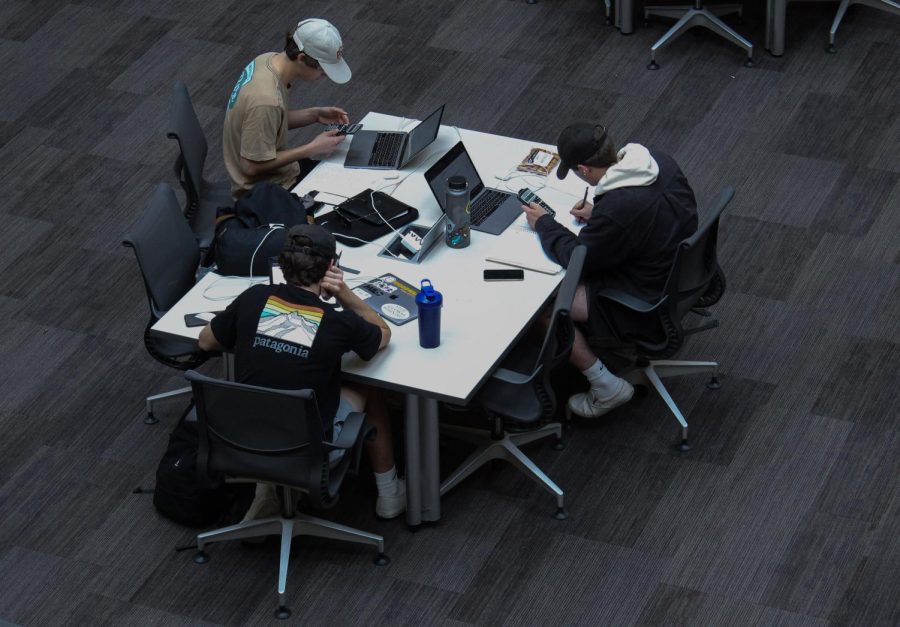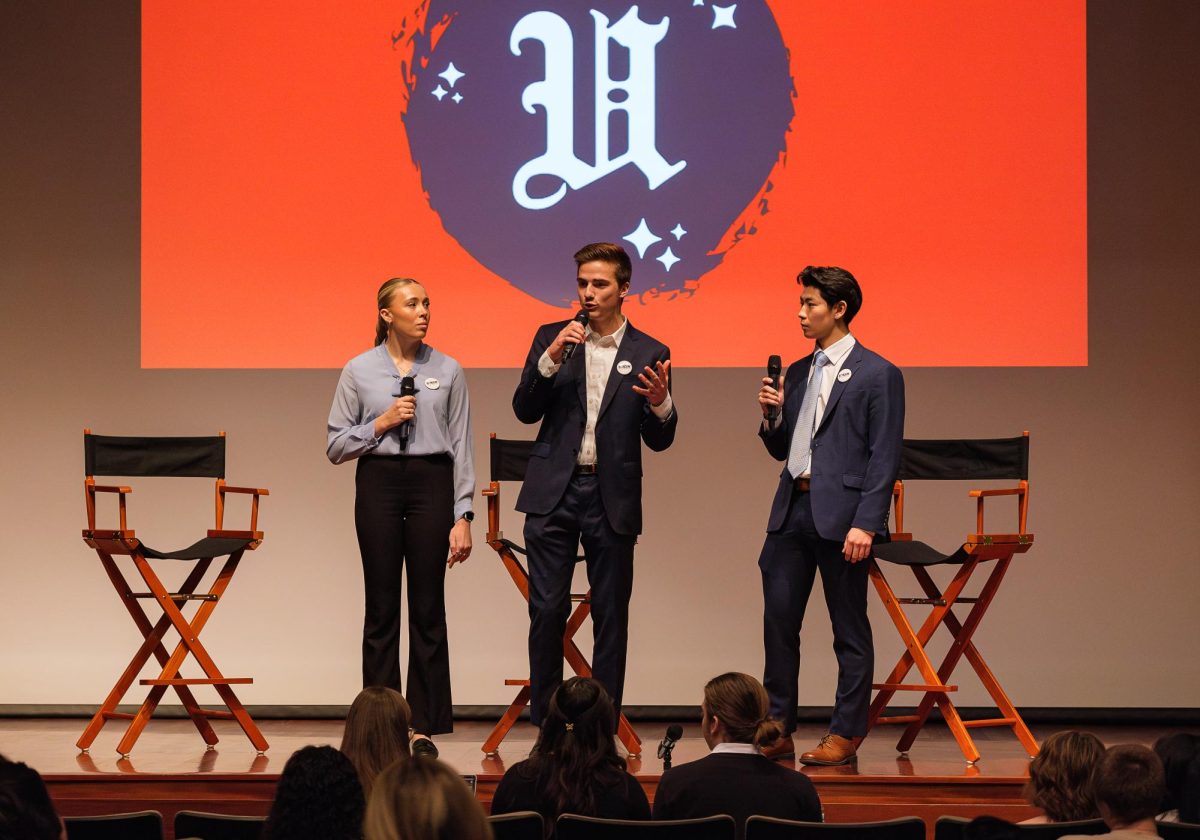Searching for Stability After Graduation
Students study at the J. Willard Marriott Library at the University of Utah Campus in Salt Lake City, on Nov. 1, 2021. (Photo by Brooklyn Critchley | The Daily Utah Chronicle)
January 28, 2022
When the murmurs of COVID-19 overseas turned into a reality for the United States, the country shut down. Workers were laid off and society retreated to their homes, waiting to see how the virus would continue to spread.
With entire industries, such as service and hospitality, experiencing periods of economic stagnation, jobs became scarce. MarketWatch explains that in the first few months of the pandemic alone, 22.2 million jobs were lost in the United States. According to the Center on Budget and Policy Priorities, 5 million more jobs existed in February 2020 as compared to September 2021.
Stan Inman, the director of the Career & Professional Development Center at the University of Utah, said it was no surprise that many new graduates of the last year had their job search disrupted.
“Employers certainly were pivoting around trying to determine if jobs could be done virtually, and not only disrupted the opportunities for new graduates to take full-time professional opportunities but even maybe more disrupted [opportunities for] students who plan for summer internships that now could not happen in person,” Inman said.
For recently graduated college students, the above numbers did not look good. But, not all hope was lost.
“Employers are not going to judge you if you are unemployed during a pandemic. However, they are going to focus on what you did during this time,” Hassan Akmal, executive director of the UCLA Career Center, said in an email interview with the Los Angeles Times. “What they want to see is that you are productive and taking your career development seriously.”
As the months went on and restrictions eased up, the job hunt returned and recent college graduates attempted to enter the real world.
Those who boil the college experience down to return on investment have heightened and polarized the conversation around this subject.
With tech giants such as Apple and Amazon reaching for new heights, pressure to join the STEM fields and get an undergraduate degree in one of these disciplines has continued to increase in recent decades. A 2014 report from the Department of Education found that STEM majors a few years out from graduation on average earn about $15,500 more than non-STEM majors.
However, Shavauna Munster, the academic coordinator of the Department of History at the U, who graduated with a B.A. in history and creative writing and an M.A. in medieval history, said every degree comes with its own struggles and instabilities.
“I think you often hear, like, the struggling artist, the struggling writer, and there’s always like the struggle before it, this idea that you won’t have a stable job,” she said. “But as we’ve seen with the last year, nothing’s really stable.”
The Office of Budget & Institutional Analysis said the top five degrees in 2021 at the U were psychology, communication, kinesiology, nursing and biology, in that order. Of the 5,437 bachelor degrees awarded, 38% were in STEM fields, while 62% were in non-STEM fields, which included degrees such as business, education and design.
“If that’s what you want to do, then commit to it, because I heard the same thing: don’t go into it because you won’t make a lot of money,” she said. “I got a lot of flack from several people who wanted me to go into fields that made more money or had more prestige or would have more stability or was more longevity-driven in career terms. But I knew for myself, this is what I want to do.”
For those looking for a job post-graduation, the Career & Professional Development Center at the U supplies students with opportunities and offers various resources such as the Peaks & Valleys blog, which provides articles detailing career tips and tricks and career coaches trained in helping students define their educational and professional goals.
One important aspect of their services offered is the platform called Handshake. All U students have an account and simply need to log in to access the site. Once in, they can look for full and part-time jobs and internships, among other options, and connect with future employers looking to fill spaces.
With a dedicated Career Studio in the Student Services building and events such as careerfests being hosted every fall, students can take advantage of these resources for free.
“Check out our website because the Career Studio is a great place where you just drop in,” Inman said. “You can stay as long as you want, you can work on your job search or you can work on your applications, and there’s always going to be the critique of an intern in the studio when we’re open to help, to help you.”









